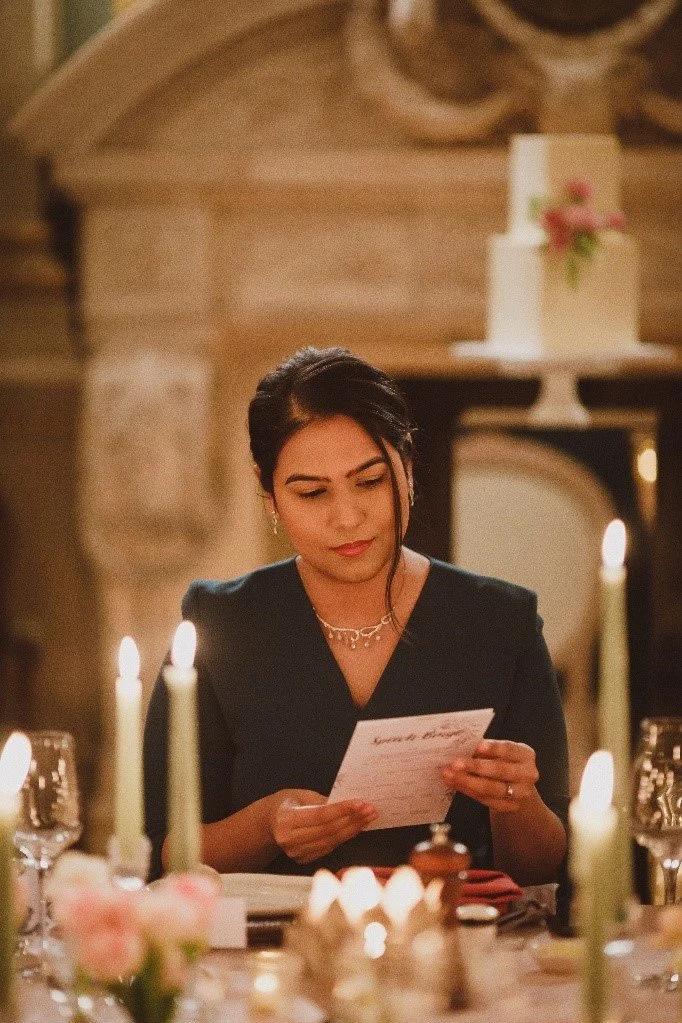We are pleased to announce Matrix barrister, Mariyam Kamil, as our Next Generation Media Lawyer of the Month (May)! Congratulations Mariyam.
Called to the bar of England & Wales in 2021, Mariyam joined Matrix as a member in May 2023. Mariyam is currently developing a practice in all aspects of media and information law including defamation, privacy/misuse of private information, confidentiality, data protection and harassment.
Mariyam recently appeared unled in the High Court for a leading London University which was successful in striking out a defamation claim against it. She is a member of the counsel team in the Mobile Telephone Voicemail Interception Litigation. Mariyam also assisted Catrin Evans KC and Ben Silverstone in Wright v McCormack, where the Court of Appeal considered the relevance of the Claimant’s litigation misconduct in assessing damages for defamation.
Before coming to the bar, Mariyam read for the BCL, MPhil and DPhil degrees at the University of Oxford. Her research, which examines the constitutional right to privacy in India, was cited with approval by the Supreme Court of India in Puttaswamy v Union of India AIR 2017 SC 4161. She is a co-author (with Sara Mansoori KC) of the chapter on ‘Remedies’ in the forthcoming edition of Online Publication Claims: A Practical Guide.
Find out more about Mariyam and her journey into media law below.
1. What made you decide to become a barrister?
After my undergraduate law degree, I spent a year working as a judicial assistant to the Chief Justice of India. During that time, I had the opportunity to observe many different styles of advocacy. This experience helped me realise my own interest in written and oral advocacy.
I went on to pursue a masters degree and then a research degree for a few years. During that period, I missed being in Court.
What drew me to a career at the Bar was the opportunity to combine rigorous legal analysis with practical challenges such as case strategy, witness handling and advocacy. I also found the prospect of being self-employed appealing.
2. What made you fall in love with media law?
I very much stumbled my way into developing an interest in media law.
I first came across it when I was looking for potential topics for my MPhil thesis. The right to privacy was a controversial and topical issue in India at the time. I therefore chose it as the subject of my research.
I enjoyed working on the right to privacy in India on my MPhil and felt that I could develop my research into a doctorate. On the doctorate, I had the opportunity to consider some comparative aspects, including the English law of privacy and data protection.
When I decided to pursue a career at the Bar, therefore, media law was a natural choice.
3. You have an incredibly impressive academic background - tell us about a time where you had to stay motivated and inspired when faced with challenges or setbacks during your studies.
Pursuing a research degree can be an isolating experience at times. You often spend several days in the library alone, reading and thinking about a difficult legal problem.
But if I had to single out a period which was particularly challenging for me, it would have to be the first Covid lockdown. My parents and family live in India. During lockdown, it was difficult being away from them, in a different country, while they were coping with health challenges. This took a toll on my emotional and mental well-being. At the time, I was trying to write up the final parts of my doctoral thesis, and I found myself struggling.
Fortunately, I had an incredibly supportive doctoral supervisor. He encouraged me to take some time off and focus on the more pressing issues that I needed to address. After a short break, I was able to return to my research.
4. What advice would you give to aspiring lawyers?
Do not self-exclude yourself. I think people sometimes do not apply for opportunities because they feel they need to fit a particular mould. In my experience, this is often a misconception. Being yourself should not—and usually will not—preclude you from an opportunity if you are otherwise well-suited for it.
5. In an alternative universe where lawyers didn’t exist and every job was paid exactly the same – what would be your job and why?
In this alternative universe, I would probably run a boardgame café!
I enjoy discovering new boardgames and have a group of friends who share this interest. I also find it fascinating to observe the creative and analytical approaches people adopt to solving puzzles.
Mariyam Kamil, Matrix Chambers
